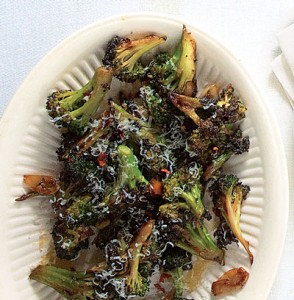What is “Clean Eating”?
This post begins a series on performance & fat loss nutrition, which is commonly called “clean eating”. There’s a lot of debate regarding “clean eating”. Really, what does that mean? Are organic, grain-free pancakes “clean”? Is a broccoli head cooked with canola oil “not clean”? The phrase “clean eating” is ubiquitous, and I think most of us would consider it sort of confusing.
This humorous Jezebel post lists 89 actual scientific studies with completely different “results” about how to lose weight. I think it illustrates the total confusion most people experience around nutrition, exercise, and fat loss.
Here’s a clip:
“1. First of all, don’t work out.
2. Or, wait: Exercise. But not too much. If you’re doing intense exercise, then it’s time to exercise less.
3. But this thing called cardio is good.
4. And you should definitely do Zumba!
5. No, actually, you should do interval training.”
….and there are 84 more studies for you to peruse. You know, if you have the spare time.
How does one know how to eat or how to exercise? We have too many things going on to wade through all of the conflicting data. It’s overwhelming.
Here is the simple truth:
1) You should exercise. Specifically, you should do exercise that you you enjoy. This is because people adhere to exercise programs that they enjoy. You should also pick something that is effective. That’s another post for another day, but suffice it to say that Crossfit fits the bill. Crossfit methodology, specifically the way Crossfit is programmed at EDCF, engages all major muscle groups in a functional way, and also targets all energy pathways to produce a powerful physical response.
2) You should eat real foods; not processed junk. Choose foods with a lot of nutrients, and not a lot of calories. Eat to promote 1) optimal health and athletic performance and 2) to maximize lean muscle and minimize excess body fat. Broccoli is still better than paleo pancakes, even though they are both “paleo”.
Two of the most famous short summaries are as follows:
“Eat food. Not too much. Mostly plants.” (Michael Pollan)
“Base your diet on garden vegetables, especially greens, lean meats, nuts and seeds, little starch, and no sugar.” (Greg Glassman)
A great way to define “clean eating” is this: eating in a way that favors athletic performance, health, and optimal body composition.
3) Quantity matters, both in exercise and food consumption. If you want to gain mass, you will need to be in a caloric surplus (eat more than you burn). If you want to lose weight, you’ll need to be in a caloric deficit (burn more than you eat.)
So, there you have it.
Exercise & Eat Whole Foods. Do both in the appropriate quantities.
Easier said than done, though.
Look for upcoming posts to answer questions like “How do I eat clean?” and “How much do I need to be eating?” We’ll go through all of the nitty gritty how-tos of making your clean eating dreams a reality. Hint: It’s easier than you think.
Want a few new recipes for your clean eating arsenal? Check out this paleo recipe: Paleo Orange Chicken! Yum! Bonus: Broccoli Straccinati (it sounds fancy, but it’s ultra simple!)
Want some additional motivation in your quest to become healthier? East Dallas Crossfit will be hosting a body composition challenge in March. You can win by coming to class consistently and eating well! Lose some fat, improve performance, and win a prize!
Want more? Check out these three posts!
EDCF Nutrition Part 2: Paleo Zone is the Way to Go!
EDCF Nutrition Part 3: The Easiest Path to Paleo Zone
EDCF Nutrition Part 4: One Week of Meal Prep


